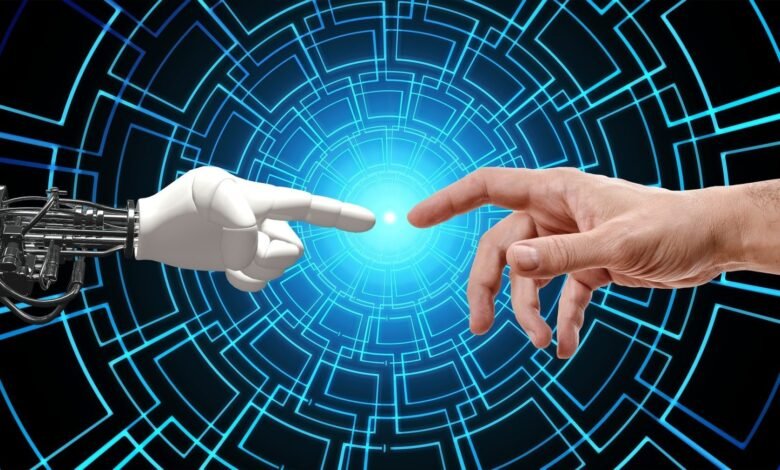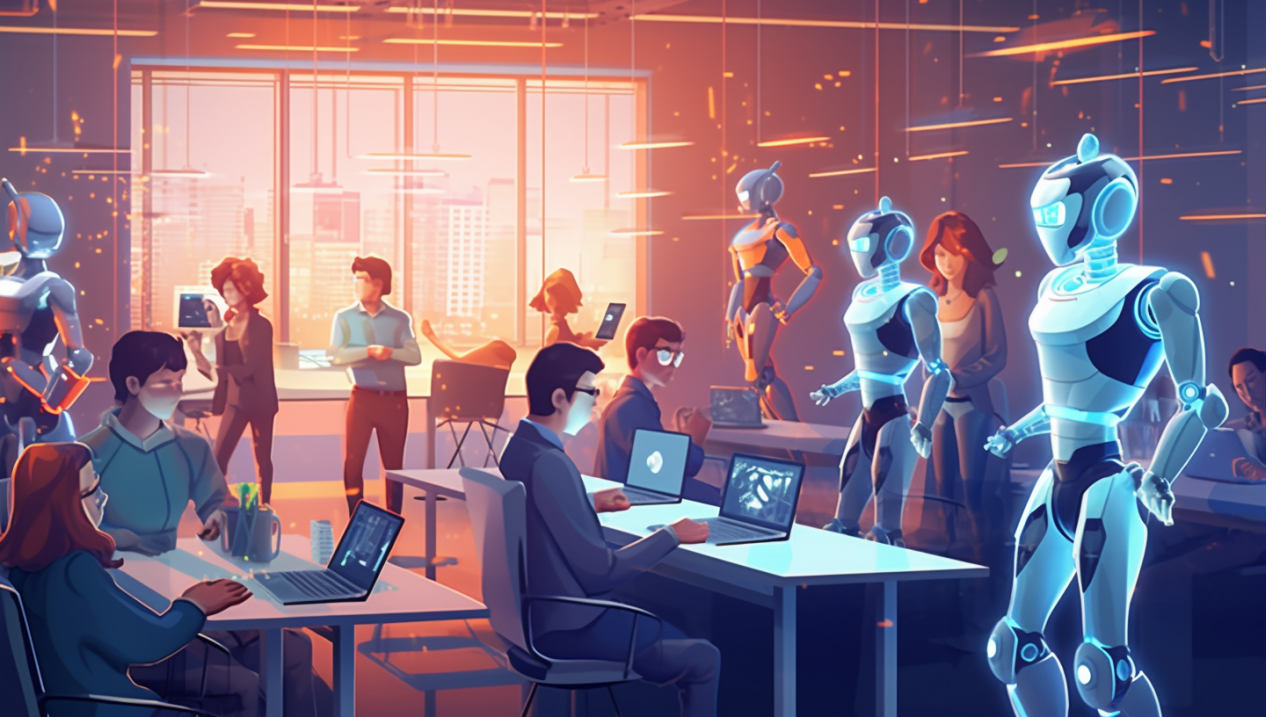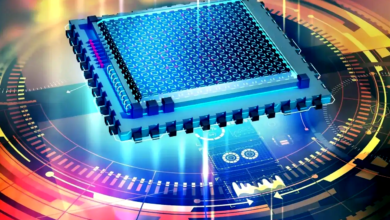How to Enhance Education with AI-powered Learning Systems in 2023

In recent years, the integration of artificial intelligence (AI) into various industries has led to transformative changes, and the field of education is no exception. With the advancement of AI technology, educators and institutions have begun to harness the power of AI-powered learning systems to enhance the educational experience for students. These innovative systems are revolutionizing the way students learn, interact, and succeed. In this article, we’ll explore how AI-powered learning systems are reshaping education and discuss the benefits and challenges associated with their implementation.
We have always been a dynamic field, evolving in response to technological advancements. In 2023, AI-powered learning systems are at the forefront of this evolution, offering novel approaches to engage and educate students.
The Rise of AI in Education
As AI technologies have matured, educational institutions are embracing their potential. These systems have the ability to analyze vast amounts of data, allowing educators to gain insights into students’ learning patterns and behaviors.
Personalized Learning Paths
AI-powered learning systems have paved the way for personalized learning paths that cater to individual needs. By understanding each student’s strengths, weaknesses, and learning style, these systems can tailor educational content and pacing to optimize learning outcomes.
Tailoring Education to Individual Needs
Traditional classroom settings often struggle to accommodate the diverse needs of students. AI addresses this challenge by adapting coursework to each student’s learning speed and preferences, ensuring no one is left behind.
Real-time Progress Tracking
With AI, educators can track students’ progress in real-time. This not only helps identify struggling students who may need extra support but also allows teachers to adjust their teaching methods based on immediate feedback.
Intelligent Content Creation
AI is transforming the way educational content is created and delivered. These systems can generate interactive and engaging content that caters to various learning styles, making more captivating and effective.
Adapting to Different Learning Styles
People have different ways of absorbing information. AI-powered systems can create content in different formats—text, videos, interactive simulations—to accommodate visual, auditory, and kinesthetic learners.
Enhancing Creativity and Critical Thinking
Rather than replacing teachers, AI tools serve as collaborators. For instance, AI can assist in brainstorming sessions, helping students develop innovative ideas and fostering critical thinking skills.
Virtual Classrooms and Smart Assistants
The digital transformation has also led to the rise of virtual classrooms and smart assistants, enabling learning beyond physical boundaries.
Enabling Seamless Remote Learning
Especially relevant in the wake of the global pandemic, AI-powered virtual classrooms have made remote learning more engaging and interactive, replicating the benefits of in-person instruction.
24/7 Learning Support
Smart assistants equipped with AI can provide around-the-clock support to students. Whether it’s answering questions or helping with homework, these assistants contribute to a continuous learning experience.
Overcoming Challenges and Concerns
While the integration of AI in education holds immense promise, it’s not without challenges.
Data Privacy and Security
Collecting and analyzing student data raises concerns about privacy and security. Institutions must prioritize safeguarding sensitive information to maintain trust among students, parents, and educators.
Maintaining Human Connection
AI-powered systems excel at certain tasks, but human connection remains vital. Nurturing relationships between educators and students fosters emotional and social development, which AI cannot replace.
The Future Landscape of AI in Education

The trajectory of AI-powered learning systems is pointing towards a future becomes even more inclusive, adaptable, and personalized. As AI continues to evolve, its role in education will expand, leading to innovative and immersive learning experiences.
Personalized Learning through AI
AI’s ability to analyze individual learning patterns and preferences allows for tailor-made educational experiences. Adaptive learning platforms can adjust content and pace according to each student’s learning style, enhancing comprehension and retention rates.
Smart Classrooms and Learning Environments
Equipped with AI-driven tools, classrooms are transforming into interactive spaces. Virtual reality (VR) and augmented reality (AR) applications provide immersive learning experiences, enabling students to grasp complex concepts with ease.
AI-Powered Tutoring and Assessment
Tutoring no longer remains bound by time and location. AI-powered tutoring systems offer 24/7 assistance, while automated assessment tools streamline grading and feedback processes, saving educators valuable time.
Enhanced Administrative Efficiency
AI streamlines administrative tasks, from enrollment to resource allocation. Chatbots handle inquiries, while predictive analytics aid in resource planning and curriculum design, optimizing educational institutions’ efficiency.
Ethical Considerations in AI Education
While AI offers immense potential, ethical concerns arise. Striking a balance between data usage, privacy, and student autonomy is crucial. Educators must ensure that AI technologies are used responsibly.
Preparing Students for an AI-Driven World
AI skills are becoming essential in the job market. Educators are integrating programming, data analysis, and critical thinking into curricula, preparing students for a future where AI collaboration is the norm.
Breaking Language Barriers with AI
Language need not be a barrier to education anymore. AI-powered language translation tools facilitate learning for non-native speakers, promoting inclusivity and global collaboration.
AI and Special
AI’s adaptability benefits students with special needs. Personalized learning plans cater to diverse learning abilities, creating an inclusive environment where every student can thrive.
The Role of Teachers in an AI-Integrated Classroom
Teachers remain irreplaceable. AI complements their role by automating repetitive tasks, allowing educators to focus on fostering creativity, critical thinking, and emotional intelligence in students.
Challenges and Concerns
The integration of AI presents challenges, including technological disparities and the potential for bias in algorithms. Addressing these concerns is vital to ensure equitable access to AI-powered education.
AI in Higher
Higher education institutions embrace AI for research, student support, and curriculum enhancement. AI’s data analysis capabilities aid in predicting student success and tailoring education pathways.
Skills of the Future: Navigating an AI-Centric Job Market
AI’s rise prompts a shift in job market demands. Soft skills such as adaptability, communication, and problem-solving gain prominence alongside technical skills, fostering holistic career readiness.
Investments and Innovations in EdTech

The intersection of AI and technology (EdTech) is a hotbed of innovation. Venture capital investments pour into AI-driven EdTech startups, fueling advancements that shape the future of learning.
Conclusion
Incorporating AI-powered learning systems i is a significant step towards creating a more effective and engaging learning environment. We individual needs, enhancing content creation, and embracing virtual classrooms, educators can provide students with the tools they need to succeed in an ever-changing world.
Read more : Top 10 Best eCommerce Tools Software 2023
FAQs
How do AI-powered learning systems personalize education?
AI analyzes student data to understand their learning style and pace, allowing educators to tailor content and support.
What challenges does AI face in education?
Challenges include data privacy concerns, the need to maintain human interaction, and ensuring equitable access to technology.
Can AI completely replace traditional classrooms?
No, AI can enhance but the human element of teaching and emotional support remains crucial.
Are AI-powered systems accessible to all students?
Efforts must be made to provide equal access to AI-powered education, ensuring no student is left behind due to technological barriers.
What does the future hold for AI in education?
The future will likely see AI playing an even larger role, making education more adaptive, personalized, and inclusive.
Read more : How to Prepare for the Future of Virtual Reality Entertainment in 2023







